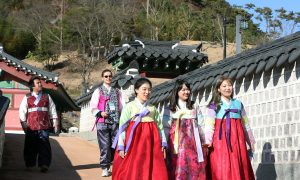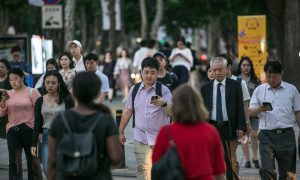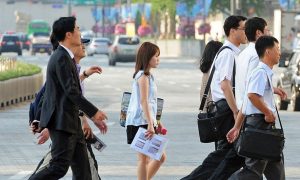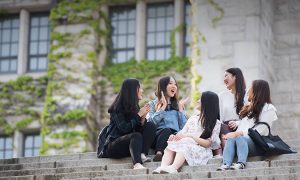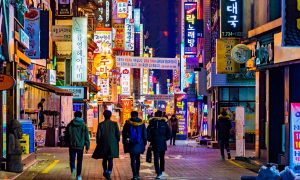Korea is a country with advanced technology, rich educational resources and high quality of life, attracting students from all over the worldimmigrants. Whether it is for work, study, investment or family reunion, Korea offers a variety of immigrant visa paths to meet the needs of different groups of immigrants. If you are planning toImmigration to Korea, it is vital to understand the types of visas available in South Korea, the application requirements and the process. In this article, we will analyze the main immigrant visa types in South Korea in detail to help you choose the visa route that best suits your needs.
1. Work Visa (E-series Visa)
(1) E-7 Professional Work Visa
The E-7 visa is a work visa specifically for foreigners with special skills and expertise. It is applicable to professionals in the fields of information technology (IT), engineering, medicine and finance. Foreigners applying for this visa are required to have a work contract from their employer and prove their expertise in the relevant field.
Terms of Application:
- An employment contract must be obtained from a Korean employer.
- Must have an advanced degree in a related field or significant work experience.
- Proof of skill level is required (e.g., certificates of qualification, proof of employment, etc.).
Advantage:
- Korea places a high value on highly skilled foreign talent, and the E-7 visa is the main way for foreign professionals to enter the country.
- After obtaining an E-7 visa, you can work in Korea for a long period of time, usually for one to three years, and it can be extended.
(2) E-2 English Teacher Visa
The E-2 visa is a Korean work visa for foreign English teachers, especially for foreigners who teach English at language schools, public schools or private schools. This visa is common for teachers from English-speaking countries, especially the United States, Canada, the United Kingdom, and Australia.
Terms of Application:
- Must hold a degree related to the teaching of English, usually requiring at least a bachelor's degree.
- A work contract from a Korean educational institution must be provided.
- A certificate of no criminal record and a health examination report are required.
Advantage:
- English teachers are in great demand in Korea, especially in the fields of children's education and adult education.
- Through the E-2 visa, foreign teachers can obtain long-term employment and enjoy benefits such as medical insurance during their working years.
2. Student visa (D-series visa)
(1) D-2 Student Visa
The D-2 visa is Korea's study visa for foreign students who plan to attend a Korean university or graduate school. Korea is home to many international universities such as Seoul National University, Yonsei University, and Korea National University, attracting a large number of students from all over the world.
Terms of Application:
- You must obtain a letter of acceptance from a Korean institution of higher education.
- Proof of sufficient funds to cover tuition and living expenses while in Korea is required.
- Applicants are usually required to have a certain level of proficiency in Korean or English, depending on the school.
Advantage:
- Korea is a global leader in the quality of higher education, especially in the fields of science and technology, medicine and engineering.
- During the period of study, students can enjoy a more relaxed policy on part-time jobs, and some students can work legally to relieve financial pressure.
(2) D-4 Language Learning Visa
The D-4 visa is for foreigners coming to Korea to study the Korean language, especially those who are preparing to enter a Korean institution of higher learning. This visa is usually used for studying Korean at language schools and provides a transitional period for students applying for a D-2 visa.
Terms of Application:
- Must be admitted to an accredited language school in Korea.
- Proof of sufficient funds to cover tuition and living expenses is required.
Advantage:
- The D-4 visa provides excellent language preparation for students wishing to study at Korean universities.
- During the study period, students can improve their Korean language skills and adapt to the social and cultural environment of Korea.
3. Investment and entrepreneurship visas (D-series visas)
(1) D-8 Investment Visa
The D-8 visa is a visa for foreigners who wish to invest or start a business in Korea. It is applicable to entrepreneurs who wish to start a company or make an investment in Korea. The Korean government encourages foreign entrepreneurs to invest in Korea, especially in the high-tech sector.
Terms of Application:
- There must be capital to invest in Korea, usually a minimum of 50 million won (about $40,000) is required.
- The investor is required to provide a relevant business plan and demonstrate their business capability.
- Must be able to provide adequate financial and tax documentation.
Advantage:
- Foreign investors can enjoy a range of tax incentives, especially for innovative companies.
- The D-8 visa allows foreign investors to live and operate their businesses in Korea for a long period of time.
(2) F-2 Self-Employed Visa
The F-2 visa is available to foreigners who wish to engage in self-employment (e.g., freelancers, consultants, artists, etc.) in Korea. Applicants for this visa are required to prove that they have the appropriate vocational skills and are able to conduct business independently.

Terms of Application:
- Proof of relevant work experience or professional qualifications is required.
- Must have enough money to support your livelihood in Korea.
Advantage:
- The F-2 visa offers expatriates the flexibility to work in a wide range of self-employed occupations.
- Foreigners with F-2 visas can enjoy more liberal employment and residency policies.
4. Family reunification visas (F-series visas)
(1) F-6 Spouse Visa
The F-6 visa is a visa provided by Korea for foreign spouses, and is applicable to foreigners married to Korean citizens. Through the F-6 visa, foreign spouses can legally reside in Korea and enjoy the corresponding social benefits.

Terms of Application:
- Must be married to a Korean national and provide a marriage certificate.
- It is necessary to prove that both parties have stable financial resources and pass a language proficiency test.
Advantage:
- The F-6 visa enables foreign spouses to reunite with their Korean national spouses and enjoy the freedom to work and live.
- Spouses on F-6 visas are eligible for medical, educational and social security benefits in Korea.
(2) F-5 Permanent Resident Visa
The F-5 visa is a permanent resident visa for foreign nationals residing in Korea for a long period of time. Typically, applicants must have lived in Korea for five years and meet certain language proficiency and financial requirements to apply for this visa.
Terms of Application:
- Have lived in Korea for five years and meet the language and financial ability requirements.
- Must have a stable career and proof of sufficient financial resources.
Advantage:
- F-5 visa holders are entitled to the same living benefits as Korean citizens, including medical insurance, pension and social welfare.
- The permanent resident status makes the holder's life in Korea more stable.
5. concluding remarks
Korea Immigrant VisaA wide range of options are available for different immigration needs. Whether you wish to migrate for work, study, investment or family reunification through theImmigration to KoreaAll of them can choose the most appropriate visa route for their situation. Understanding the conditions, advantages and challenges of different visas before applying for them will help you to successfully complete the immigration process and start a new life in Korea. We hope this article will help you with your immigration plans and help make your future in Korea smoother and more fulfilling.

